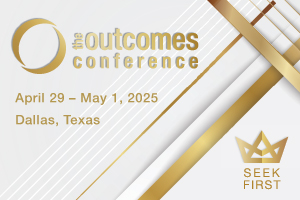
Love and Unity By Dr. Brian S. Simmons

A Biblical Mandate for Love and Unity
Stewards assigned and anointed by God to lead Christian organizations can learn several practical leadership principles by studying the church and the role of love and unity. Several passages of Scripture (Romans 12, I Corinthians 12 & 13, and Ephesians 4) instruct believers, who collectively comprise the church. Two themes emerge among these instructions: love and unity.
In I Corinthians 12, for example, fundamental principles include “a spiritual gift is given to each of us as a means of helping the entire church” (verse 7), ‘the Holy Spirt distributes these gifts and He, alone, decides which gift each person should have” (verse 11), and “there are many parts but one body” (verse 20). And it is no accident that the very next chapter (I Corinthians 13) is devoted entirely to the theme of love!
In Romans 12, these principles include “living in harmony with each other … and don’t act like you know it all” (verse 16) and “doing your part to live in peace with one another as much as possible” (verse 18). In verse 10, Paul writes, “Love each other with genuine affection.”
Finally, Paul writes in Ephesians 4, “Always keep yourselves united in the Holy Spirit” (verse 3). “We are all one body” (verse 4). “Be humble and gentle. Be patient, allowing for each other’s faults because of your love” verse 2). “We will hold to the truth in love” (verse 15). And, “the whole body fits together perfectly. As each part does its own, special work, it helps the other parts grow so that the whole body is healthy and growing and full of love” (verse 16).
Love
In my earlier years, I believed leaders needed to maintain a distance from those they led because of accountability. My opinion has changed. Today, I would say how sad it would be if we did not develop loving relationships with those we have served through the years! Some of my closest friends today are those with whom I have served in various Christian organizations through the years!
“Love is patient. Love is kind. Love is not jealous or boastful or proud or rude. Love does not demand its way. Love is not irritable and keeps no record of when it is wronged. It is never glad about injustice but rejoices whenever the truth wins out. Love never gives up, never loses faith, is always hopeful, and endures through every circumstance I Corinthians 13:4-7). Simply put, we are to love one another, and this commitment begins at the top!
As stewards, we are entrusted with time, treasure, talent, and relationships. Of these good gifts, relationships are the most precious. This explains why the Evil One fiercely attacks relationships! These relationships exist on four levels: with God, self, others, and creation, which includes organizations.
Unity
Unity is defined as “oneness.” In organizations, this unity should support guiding philosophy statements such as the mission, vision, core values, belief statements, and other foundational statements of purpose. Leaders maintain a tension between what must change to keep the organization growing and what must never change. The board of directors serves as the primary stewards of the organization. The most crucial thing for all board members is to keep the mission of the organizations they lead true. Presidents or CEOs serve under the authority of the board of directors as under stewards. Presidents and CEOs should seek out and act on the purposes that the board, collectively, has established for the organizations they ultimately lead.
The Bible describes the church as a body. Various body parts are different, yet in healthy bodies, all parts are essential; the essentiality of purpose causes the body to grow and thrive. Living things grow! The opposite is also true. When one cell in the body decides to go their way and exert their own will on the body, this cell becomes a cancer cell. As the cancer grows, the body becomes sickly and may even die!
It is important to note what unity is not! Unity is not uniformity, and unity is not unanimity!
Uniformity
Uniformity pretends that all members of an organization look alike. This is not and should not be accurate. For example, the church alone promises to one day unite all peoples from around the world in a perfect place, heaven, for all eternity. True unity should emerge around shared purpose and effective decision-making amid diversity. Christian leaders must exercise spiritual leadership as we move others onto God’s agenda for our organizations. No one person alone has a monopoly on what God’s purposes are!
Organizations are strengthened as leaders heartily debate essential issues, essentialring various perspectives, training, frames of reference, retrospective thinking, and experience into the debate. Organizational leaders regularly engage in critical thinking to mine the best ideas and act on them! True gems of thought emerge as great ideas from the landscape of healthy collaboration, discussion, and debate. Leaders do their best work as they collaboratively seek out data, analyze this data, and make data-driven decisions.
Unanimity
Unanimity pretends that all members of an organization think alike. This is not and should not be accurate. Unanimity is the state of being unanimous. Board members must agree to disagree as they debate different topics important to the health of their organizations. This is constructive conflict. Conflict is always destructive if the debate degenerates into personal attacks.
The most effective leaders engage in discussion about ideology and ideas, and the best leaders can disagree without being disagreeable! The most effective organizations seek out constructive conflict where diversity of opinions on important topics is valued and regularly encouraged. Weak leaders stifle the views of others. One of the primary benefits of constructive conflict is the impact these discussions have on effective decision-making. Rarely will eight or more people all think alike on any important topic. But from this reality comes the potential for effective leadership as ideas, opinions, and ideologies are debated, and the best ideas emerge!
Sadly, many organizations dominated by one or a few sacrifice the best decisions on the altar of quashed debate, resulting in the ideas of one or a few being forced on others. This is nothing more than the exercise of raw power as dissenting opinions are silenced, resulting in organizations that do not reach their full potential. The line between constructive and destructive conflict is crossed when personal attacks are used to manipulate people. This is not unity, and this is not loving!
“Uniform decisions” often result from groupthink, a psychological phenomenon in which group members prioritize harmony and conformity over critical thinking, resulting in poor decision-making. Scripture teaches the importance of unity, but forced, unanimous decisions violate this fundamental biblical principle.
While unity does not look like uniformity or unanimity, it does look like supporting a decision once it is heartily discussed, prayerfully considered, and ultimately made! In this sense, agreeing is an example of unity. An illustration of effective decision-making would look like board members following a meeting and expressing about an important decision, “This was our decision,” even if one or more board members presented opinions differing from the ultimately agreed-upon decision! This is biblical consensus.
Consensus is making the best decisions possible due to a free and healthy debate of ideology and ideas in an open and welcoming forum defined by love and appreciation for all participants and their unique perspectives and ideas. The best organizational decisions are made as leaders practice a healthy process of generating constructive conflict guided by biblical principles of love and unity. Over time, this practice breeds a healthy culture as leaders understand and appreciate the organization’s decision-making process and embrace the idea that this is how we do things around here! This influential organizational culture, practiced over time, often results in effective organizations.
Closing Thoughts
Christian steward leaders love and serve God by loving and serving others. Earmarks of effective steward leadership are love and unity. Steward leaders put service to God and others over self-interest. Steward leaders seek to fulfill the purposes of the Master, God, for all, He has SO graciously to their care. Also, spiritual leaders desire to move others onto God’s agenda. As we do this, He enables all we do, and He does that which only He can do!
####
Dr. Brian S. Simmons is the director of the PhD in Organizational Leadership degree program, professor, and PhD student mentor at Columbia International University. He exists as a visionary builder to further the kingdom of God through Christian education, teaching, and influencing others.

Be sure to check out this month’s featured Leader2Leader Podcast
The Danger of Comparisons with Dr. Kathleen Patterson
WATCH | LISTEN
Thanks to FaithSearch Partners for the support and sponsorship of this podcast!

What is Christian Leadership Alliance?
Christian Leadership Alliance equips and unites leaders to transform the world for Christ. We are the leaders of Christ-centered organizations who are dedicated to faithful stewardship for greater kingdom impact.
Sign up for FREE blog updates.
Upcoming Events
Check back later!




